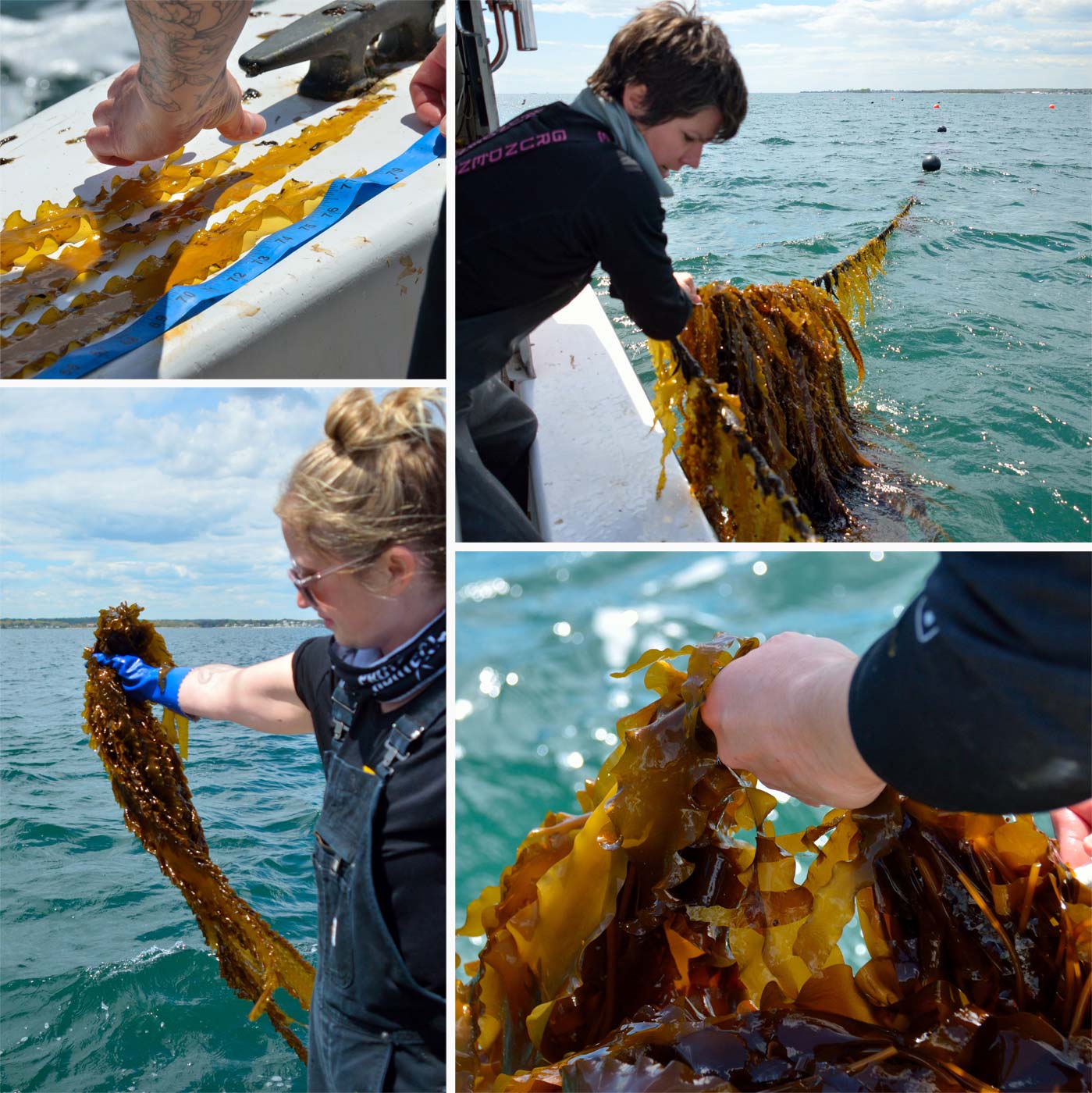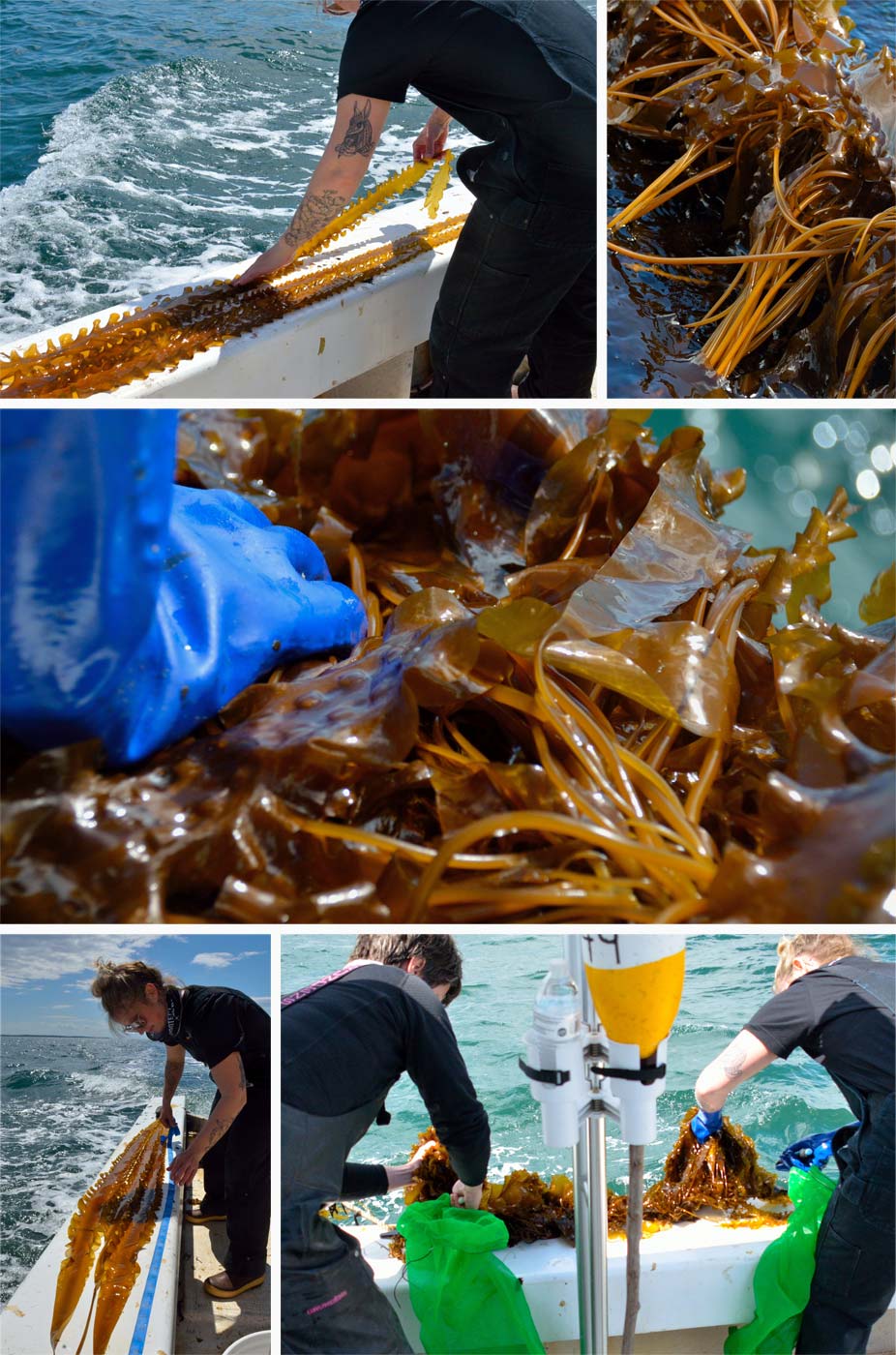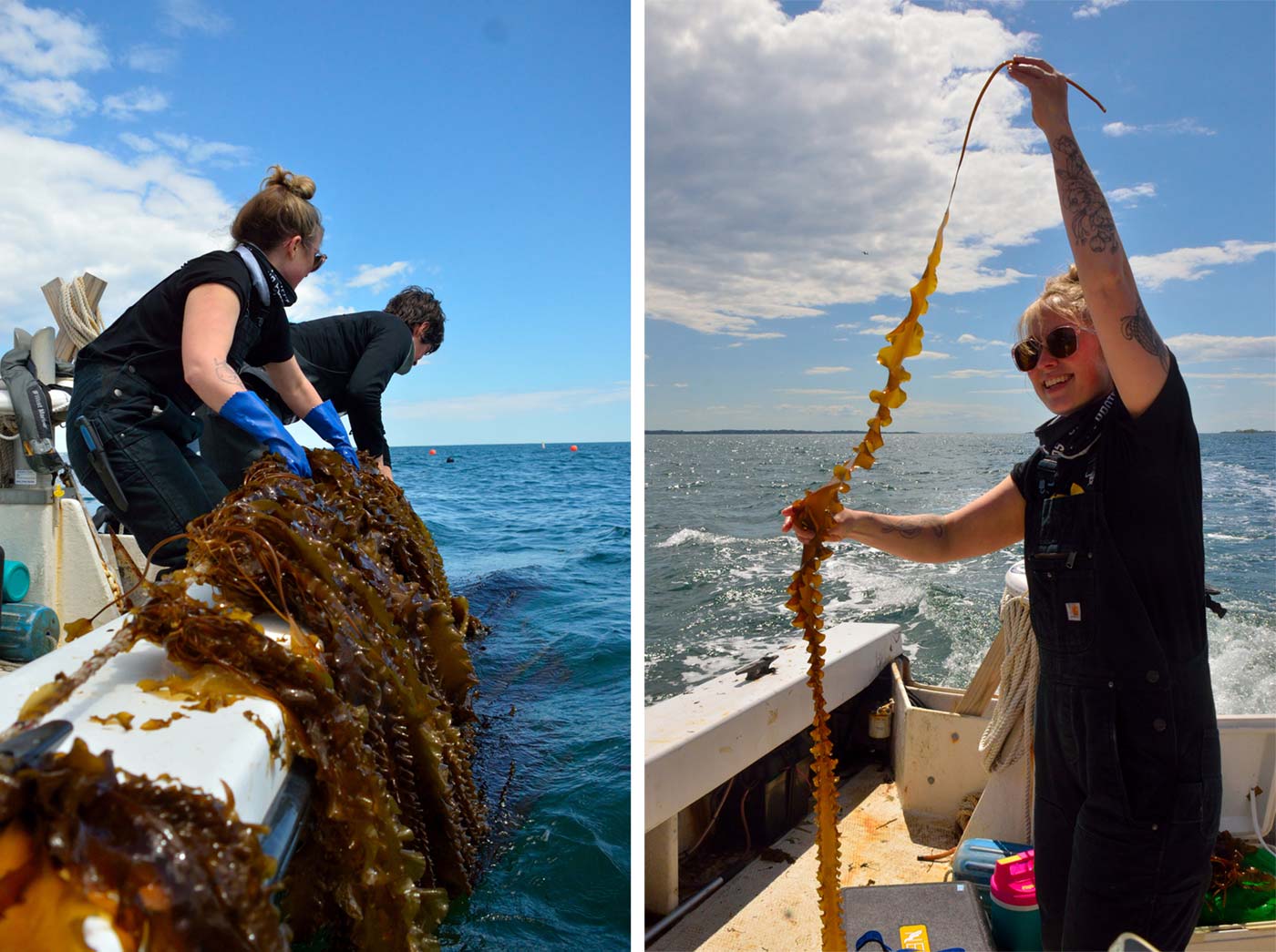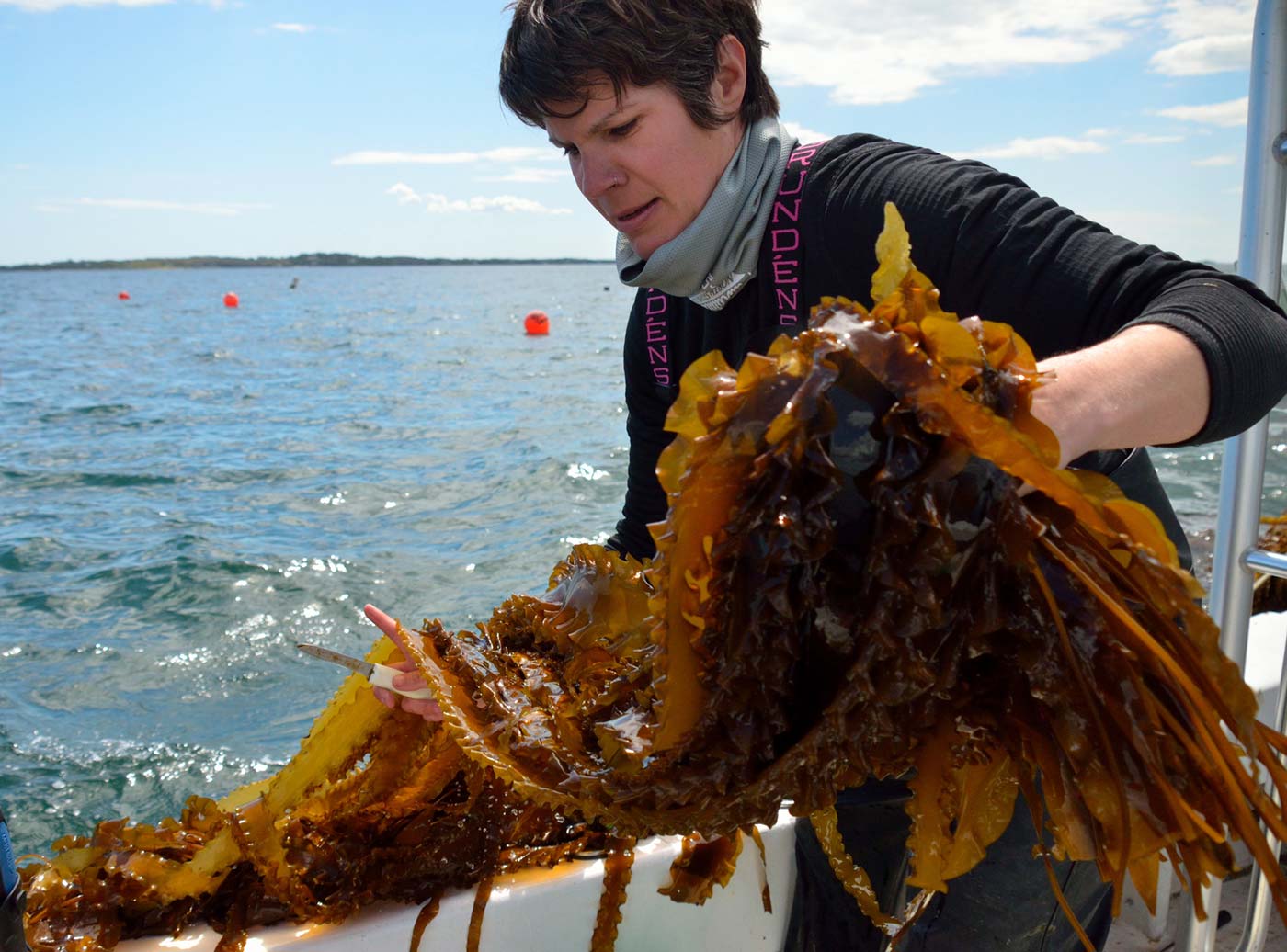Suzie Flores of Stonington Kelp has a lot to smile about
Recently honored as Connecticut’s 2021 Outstanding Young Farmer from the Department of Agriculture, Suzie Flores of Stonington has a lot to smile about. And wait ‘til you see that smile. It’s big and bright, and kind of contagious. She’s a mom to three young children and does what many try to do in terms of juggling family and professional life. Five years ago, she was still predominantly working as a market development executive for a publishing company when she and her husband, military veteran Jay Douglass, began Stonington Kelp Co. But when the people closest to Flores recognized her electric smile, they noticed it mostly when she was out at the farm or talking about it. She soon had to acknowledge that it was the farm that lit her up from the inside out. So, in 2017, the farm became both a passion and a new career path. “It was sort of a slow process, though,” Flores notes. “Jay and I worked out a plan for me to make a transition and then COVID hit. It was sort of a stumble more than a graceful transition into full-time farming, but I am here, still standing.”
Suzie is more than standing. Both Stonington Kelp Co. and the Mechanic Street Marina in Pawcatuck, the shop she helps run with Jay, are thriving, and the demand is climbing each season. With chefs and shops at the ready for her products, the company has already outgrown one boat and even the size of the farm. Furthermore, those outside Suzie’s immediate community have taken notice, and she has been featured in Food & Wine; on“Seasoned” from CT Public Radio; and “60 Minutes,” to name just a few.
To get the farm up and running in the beginning, Suzie and her husband partnered with Greenwave, a non-profit dedicated to supporting a growing number of ocean farmers. Knowing that they’d be partnering with such an environmentally sound and socially conscious organization has made them especially grateful to provide for families in the community they love, in addition to nurturing the ecosystem that surrounds them.
Seaweed, as an edible resource, and kelp, specifically, is not new--far from it. Even though we recognize it in many Asian cuisines, Japanese in particular, it once was a part of the early Native American diet, especially those from the Pacific Northwest. Today, we see it in countless meals like salads, soups, salsa, noodles, breads, pasta, and more recently as Sugar Kelp, or a not-so-new favorite, Furikake, which is similar (but even bolder) to Everything Bagel seasoning. It’s umami punch makes it a favorite on the list of products sold at Stonington Kelp.

Also known as Sweet Kelp or Kombu, it looks like long lasagne noodles, the Sugar Kelp Suzie cultivates gets its name from the white powder that forms on the surface of it as it dries; and it dries VERY quickly. It also has a very short harvesting season. (See the recipe from Chef David Standridge in this issue!)
Farming the kelp actually happens over the winter and spring months, between November and April essentially. Getting to the farm in Fishers Island Sound takes about a half hour, and, depending on the yield or client requests, anywhere from half an hour to an hour to pull in each harvest. That may not sound like a whole lot, but out there on the water, ANYTHING can happen. The work itself is incredibly physical, often taking several tries and a few sets of hands to pull the kelp off the line; and that’s not even thinking about the current or the wind. This year they projected pulling in approximately 12,000 pounds of kelp.
When talking about challenges and how Mother Nature is the ultimate boss, Suzie says, “If the weather shifts, I must also shift. It is very humbling and reminds me to appreciate that I am not in control. I need to work in the windows that the weather and the oceans offer to me.” And of course, that’s on top of managing day to day family routines, kelp deliveries to restaurants, maintaining cold storage, and running the shop.
Sold by the ounce or pound, kelp can be used as a dried seasoning, or used like spinach. It can also be reconstituted in water and used as a pungent flavoring device for broths or the star of any dish. That said, once harvested, it has a very short shelf life, so keeping it cold (or dry) is essential.
Move Over Everything Bagel Seasoning,
Make Room for Furikake
Traditionally, Furikake is a dry Japanese seasoning often used over rice, vegetables, or fish. It typically consists of a mixture of dried fish, sesame seeds, chopped seaweed, sugar, and salt. The Furikake from Stonington Kelp is vegan using sesame seeds, sugar kelp, sea salt, and sugar.

With the help and collaboration with the Sugar Kelp Cooperative, Yellow Farmhouse Education Center, Long Island Sound Ocean Cluster (LISOC), Greenwave, New England Sea Farms and Stonington Kelp Company, numerous restaurants and breweries across the region kicked off the first ever New England Kelp Harvest Week this year. From April 17th - 25th chefs, brewers, and mixologists were thrilled to create something from kelp. The diversity of inventive products, drinks, or dishes created was astounding. Of the exciting inaugural event, Suzie recalls, “There are so many gifted chefs in this region. The week spurred some friendly competition to leverage this amazing ingredient in a new way.” Chef Colt Taylor and his team of The Essex created a Kelp Miso Marinated Black Cod with Kelp Caramel and a Roasted Bone Marrow with Kelp and Garlic Pudding; Chef David Standridge from Shipwright’s Daughter Kelp Wrapped Scallop and a Furikake Bloody Mary with Stipe (the stem of the kelp) cocktail; Chef Renee Touponce of the Oyster Club made a Bucatini with Sugar Kelp Aioli and Soy Cured Halibut; Outerlight Brewing Company created Noank, a stout with oysters and kelp; and Grey Sail Brewing of Rhode Island created Age of Aquarius, a sour fruited gose (fermented beer) and one of Suzie’s favorites drinks from the week. These are just a few of the many concoctions expanding the savory and sweet horizons of this superfood.
All in all, kelp is spreading; and it is doing so in a good way. Although it is not new, Suzie expanded on why its popularity has grown through the roof. In addition to the countless health benefits, “the sustainability side of sugar kelp farming is sort of trending at the moment as well. I like to believe people are actually caring more about the planet. I want people to understand (I am sure this is what any farmer wants) that behind this food we are selling there is a whole story - there are families and ecosystems all connected to it. We farm with a deep appreciation for the waters and all the inhabitants in them and by supporting us, they also are supporting the method.”

In addition to the busy harvesting season, Suzie and her husband hope to shorten the “off season” by developing more shelf-stable products. She notes, “with the support of a Kendall Foundation Prize Through Chartwells, I was able to get commercial dryers up and running, which have allowed me to dry kelp to continue to sell as well as make other shelf stable products like kelp infused olive oil or the vegan furikake.”
For Suzie and her community, “Kelp checks all the boxes - and farming it is super fun!” Hence, that knockout smile.
Stonington Kelp Co. and the Mechanic Street Marina are located at 179 Mechanic St, Pawcatuck, CT. Follow Suzie on Instagram @stoningtonkelpco





